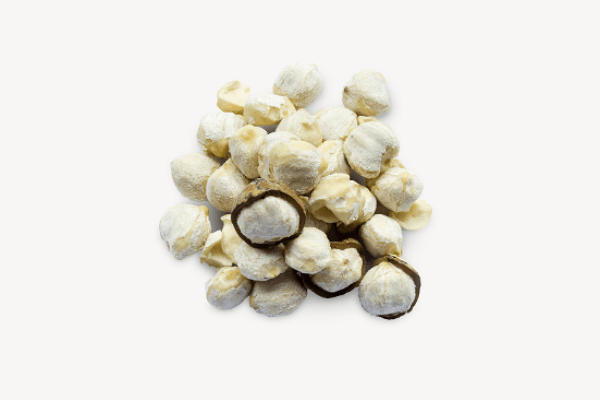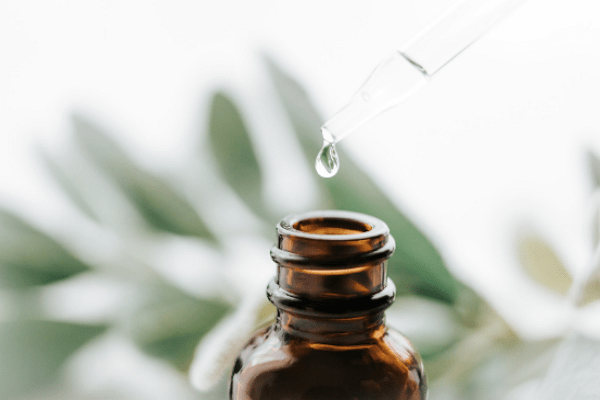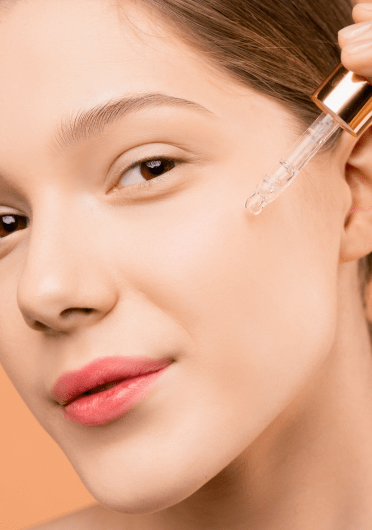Have you heard about kukui nut oil? You probably have tried as many well-liked cleansers, exfoliators, moisturizers, and serums as you can get your hands on if you have dry skin and adore skincare. While considering what has worked well for others who have similar skin types is always beneficial, focusing only on our favorite products can sometimes cause us to overlook other, less renowned skincare essentials that are equally effective.
If you have dry skin, it’s probable that you’ve crammed your skincare routine with items packed with substances like hyaluronic acid, glycerin, aloe vera, petroleum, and a variety of other widely sought-after, highly praised ingredients. However, have you ever thought about kukui nut oil?
You’re not alone if you haven’t heard of the component. It’s more typical in Hawaiian skincare and cosmetics products. But, once you are aware of what it is and the benefits it provides, you’ll want to incorporate it into your routine without delay. If you wanna know more about the uses and benefits of Kukui nut oil, you’re in the right place. So let’s begin!
What Is Kukui Nut Oil?

Kukui, which in English is translated as a (candlenut) tree, actually means enlightenment in Hawaiian. Kukui nut oil is a natural oil that is extracted from the seeds of the Kukui tree, which is native to Hawaii. This oil has been used for centuries by the Hawaiian people for its many benefits for the skin and hair.
One of the key benefits of kukui nut oil is its ability to moisturize the skin. This oil is rich in fatty acids, which help to nourish and hydrate the skin, leaving it soft and supple. It is also easily absorbed by the skin, so it won’t leave a greasy residue.
In addition to its moisturizing properties, it is also known for its anti-inflammatory and antioxidant properties. This makes it an excellent choice for those with sensitive skin or those who are prone to skin irritations. It can help to soothe and calm the skin, reducing redness and inflammation.
Benefits of Kukui Nut Oil For Skin and Hair

This oil is a versatile, healthy natural oil that has a number of benefits for the skin and hair. It is loaded with oleic essential fatty acids, linoleic, and linolenic, which your skin likes, as well as antioxidants, vitamins A, C, and E.
Eczema
While kukui nut oil can’t completely cure skin conditions like eczema and psoriasis, it’s great for reducing inflammation and preventing pain and itching. This will eventually calm and smooth down the skin if you have scaly patches.
Improves Hair
It contains a high concentration of linoleic fatty acids, which coat the hair and scalp and act as a barrier to retain moisture whether used straight or blended into shampoos and conditioners. This nutrient-rich ingredient also offers the hair and scalp the necessary compounds, enhancing the health and strength of the hair and even giving it a lustrous appearance. By supplying the scalp with so much moisture, you can also lessen dandruff and keep hair follicles robust and healthy, avoiding hair loss.
Dry Skin
Dry skin can be unpleasant and difficult to keep hydrated. If you have cracked hands, especially if you work with your hands, you may be more prone to infections. Applying the oil encourages the production of stronger skin and new skin cells.
Minimizes Wrinkles
Due to its abundance of antioxidants, kukui nut oil is a common ingredient in anti-aging skincare products. Antioxidants are substances that shield the skin by lowering free radicals, extremely reactive atoms that can harm cells’ DNA, impair their functionality, and cause apparent flaws like wrinkles. Your skin is most susceptible to injury since it is the earliest and most exposed part of your body to numerous environmental stimuli. Free radicals are neutralized by antioxidants, maintaining the skin’s look over time.
Fatty Acids
Healthy fatty acids like linoleic acid and omega-3 are found in this oil, which can soothe the skin and lessen inflammation. The oil can readily be absorbed into the skin and ease aches and pains from hurting muscles and joints because of the combination of rich fatty acids.
Wound Healing
The lipids in the oil act as a barrier over cuts and scrapes, which can hasten the healing process. In addition, the kukui nut oil’s natural anti-inflammatory effects reduce the swelling of bruises and provide burn treatment, including that unpleasant sunburns.
How To Use It
Kukui nut oil has been used for centuries in Hawaii for its moisturizing and soothing properties. It is rich in fatty acids and antioxidants, making it a great addition to your skincare and hair care routine. Here are some ways to use it for skin and hair:
For Skin:
Moisturizer: Apply a few drops on your face or body after showering for deep hydration. It absorbs quickly and doesn’t leave a greasy feeling.
Massage Oil: Use it as a massage oil to soothe sore muscles and joints. Its anti-inflammatory properties can help reduce inflammation and pain.
After-sun Care: Apply kukui nut oil on sunburned or irritated skin for its cooling and soothing effects. It can also help prevent peeling and keep your skin hydrated.
For Hair:
Hair Serum: Apply a few drops of kukui nut oil on your damp hair and style it as usual. It will help tame frizz, add shine, and protect your hair from environmental damage.
Deep Conditioning Treatment: Warm up kukui nut oil and massage it onto your scalp and hair. Leave it on for at least 30 minutes before washing it off with shampoo. It will nourish and strengthen your hair, leaving it soft and shiny.
Scalp Treatment: Apply it onto your scalp to soothe dryness, itchiness, and dandruff. Its anti-inflammatory properties can help calm down any irritation and its moisturizing properties can help keep your scalp hydrated.
Kukui Nut Oil Side Effects

According to several sources, there are possible side effects of using it. While it is a gentle and nourishing ingredient, those with nut allergies should use it with caution. Some people might experience skin irritation or itching from the use of Kukui nut oil. It is recommended to discontinue use if such symptoms occur. Stomach upset may occur if the oil is used in large quantities or exposed to heat. It is suggested to do a patch test before using the oil to prevent allergic reactions.
Coconut Oil vs Kukui Nut Oil
Coconut oil and Kukui nut oil are both popular natural oils used in skincare and hair care products. While they share some similarities, they also have some differences that make them unique.
Coconut oil is rich in fatty acids that help to nourish and hydrate the skin and hair, and it is also known for its anti-inflammatory and anti-bacterial properties. Coconut oil is a versatile oil that can be used for cooking, as a moisturizer, and as a hair conditioner.
Kukui nut oil, on the other hand, is a light, non-greasy oil that is rich in essential fatty acids and antioxidants and is also known for its ability to penetrate deeply into the skin, helping to soothe and heal dry, damaged skin.
Both coconut oil and Kukui nut oil have their unique benefits, and the choice between the two will depend on your specific needs and preferences.
FAQs
How to extract kukui nut oil?
It is extracted from the crushed kernels of the plant using solvent extraction methods. The process involves removing the kernels from the shell, then roasting and crushing the kernels to release the oil. This oil is then extracted using solvents such as hexane. The solvent is then removed through a process of evaporation, leaving behind the kukui nut oil.
It is important to note that extraction methods should be performed with care and by professionals to ensure the safety of both the person performing the extraction and the final product.
Is kukui nut oil safe for dogs?
Yes, it is safe for dogs. Kukui nut oil is known to penetrate deep into the skin and help protect against environmental damage, including overexposure to the sun, which can cause burns and other damage to a dog’s snout. Certain skin conditions have also been known to be healed through the use of kukui oil. However, before topical application to a pet’s skin, essential oils should always be diluted. A safe ratio is 1 drop of essential oil for 1.5 tablespoons of carrier oil, which equates to a dilution of approximately 0.25%, considered mild and likely agreeable for pets.
It’s worth noting that dogs should be prevented from licking salves and oils off as soon as they are applied, and more serious preventive measures, such as an Elizabethan collar, may be needed if the problem is a cut or wound that threatens to become a lick granuloma.
Is kukui nut oil good for babies?
Kukui nut oil has various benefits for the skin, including moisturizing and soothing properties. However, it is important to note that there is limited research on the use of kukui nut oil for babies. It is always recommended to consult a pediatrician before using any new product on a baby’s delicate skin. Additionally, babies can have sensitive skin and may be prone to allergies, so it is important to do a patch test before using any new product and to monitor for any adverse reactions.
Does kukui nut oil go bad?
Yes, kukui nut oil has a shelf life of 1-2 years. However, its shelf life can vary depending on how it is stored and whether it has been exposed to light and oxygen.
Conclusion
Kukui nut oil is a versatile and valuable oil that can be used in a variety of ways to promote health and well-being. Its numerous benefits make it a popular choice in natural and holistic health practices. Whether for your hair or skin, always make sure to do some tests before using it.



Comments are closed.